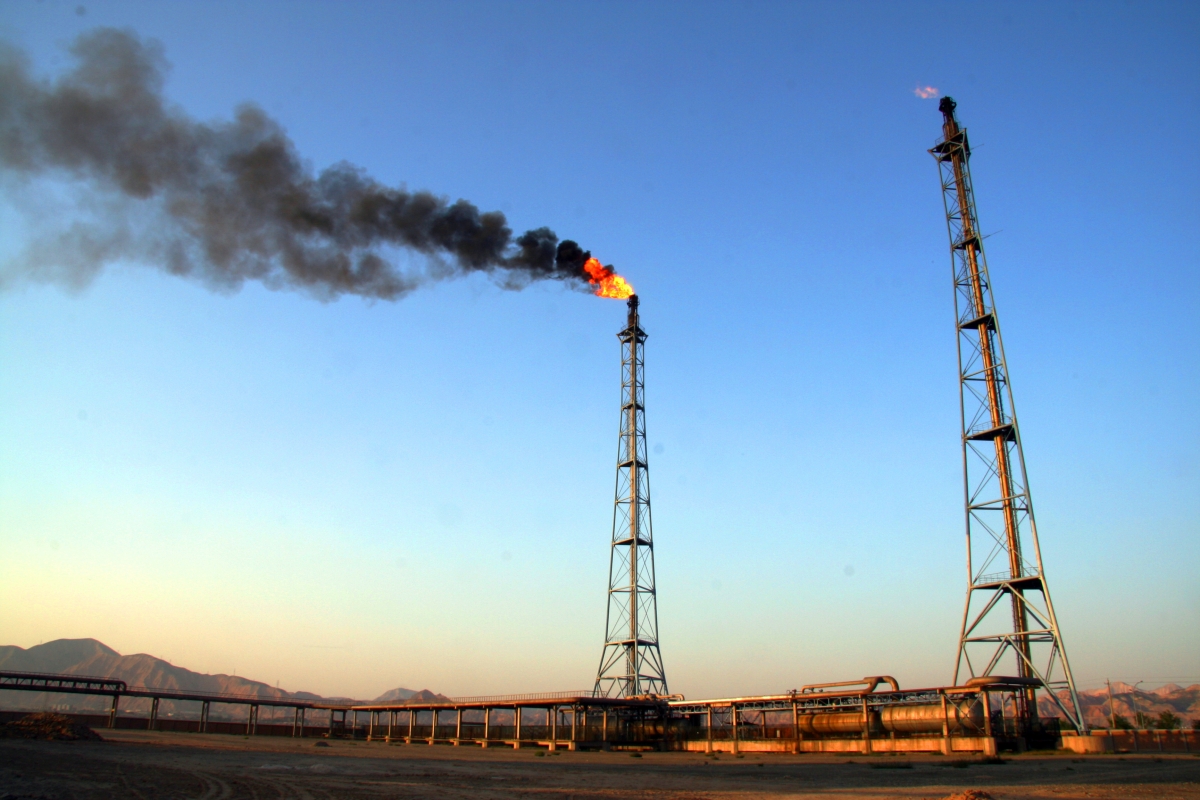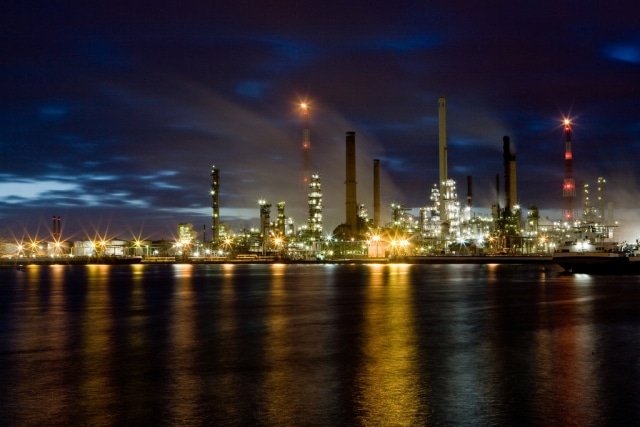James Meadway, chief economist at the New Economics Foundation, explains the interrelated economics behind China’s ‘Black Monday’ stock market crash, Middle Eastern oil and US fracking.
The ‘fracking revolution’ has transformed the economics of oil production globally, with the US becoming a bigger producer than Saudi Arabia and – after decades of dependency on oil imports – even being able to export some of its surplus production.
US shale oil is unusual, too, in being privately owned: most of the world’s oil reserves (over 70 percent) are in state hands. Like the North Sea 30 years ago, in a world dominated by state-owned companies and publicly owned reserves, US shale could look like a new frontier for private operators on the search for fat profits.
New technology, high oil prices, and plentiful cheap credit have encouraged the boom. Some $200bn has been borrowed to invest in fracking in the last few years, accounting for 15 percent of the entire $1.3tr US junk bond market. Investors were, in effect, betting on continuing high oil prices making their investments profitable for years to come.
Price Slump
Last year’s slump in prices trashed that calculation. From a mid-year high of $115 per barrel, by the end of 2014 the price per barrel had fallen by more than 40 percent. More than half of US shale rigs have been laid up since October.
The driver, last year, was the behaviour of OPEC – the Organization of Petroleum Exporting Countries. OPEC is a cartel agreement among major oil producers that seeks to manage the international market for oil. With oil prices already plunging over the summer, OPEC could be expected to ease off on production. Restricting supplies should, thanks to the magic of the market, produce a decent increase in the sale price of oil. Instead, with Saudi Arabia taking the lead, OPEC decided to continue production levels. No agreement on restricting output could be reached. Prices slumped.
The economics of oil production are simple – crude, even. The upfront investment needed to sink a new well is significant. After that point, however, the variable costs – including pay – are a minimal part of the expenditure. That’s the case even when, as in Norway, oil workers’ average annual wages are $179,000.
These high initial costs, relative to lower running costs, mean that once a well is drilled the owner has a huge incentive to keep on drilling – even at very low prices. If they can cover their immediate costs, which are low relative to the initial outlay, they can make a profit in the short run.
But that creates a ratchet effect: once a well is drilled, only a spectacular fall in the price of oil will stop oil from being pumped. The more oil is pumped, however, the lower the price is likely to fall. Each producer, in this scenario, is trapped into producing more and more, driving down the price further and further. This effect has meant the slowdown in US shale output has been far slower than might have been expected, given the dramatic decline in price.

Adam Cohn via Flickr
It’s only with a cartel, like OPEC, that this ratchet can be broken. Because it is formed by states, rather than private producers, OPEC can afford to run against the logic of the market. In the case of Saudi Arabia, with cash reserves of around $800bn, it can afford to run against the market logic for a very long time. OPEC seeks to maximise revenues for its members. Generally, that means all members agreeing to restrict supplies, and then holding to their agreement. Instead, confronted with falling oil prices, OPEC has worked to increase its supplies, apparently working directly against its own interests.
Non-OPEC Producers
Disentangling motivations from the conflicting claims is unclear. But the net effect of this drive to expand was to plunge major non-OPEC producers into serious crises. Late last year, attention was focused on Russia. The Russian Government is dependent on oil and gas revenues for about half its income, a dependency it shares with other large oil and gas exporters. This means that any decline in oil and gas prices immediately squeezes government revenues, alongside its wider economic impact.
However, the Russian Government also has deep pockets, having built up reserves estimated at around $400bn during the boom years of the 2000s. The plummeting oil price was expensive, but not disastrous if prices stabilised – as, eventually, they did, in early 2015.
The major victim of the price plunge was not Russia, but the US fracking industry. The critical number in all this is the ‘break-even’ price of oil. This is the oil price at which any given well starts to turn a profit. For US fracking, that’s $70-77 a barrel. At current oil prices, US frackers are staring at heavy losses. Conventional oil is far cheaper, with the break-even price in the Middle East running at $10-17 a barrel.
But since many oil-producing countries are financing themselves on the back of oil sales, imposing taxes to fund state expenditures, the true break-even price (including the cost of paying for the government) for most major producers is far higher. For Saudi Arabia, the ‘fiscal’ break-even price (including payments needed to keep the government afloat) is around $92 per barrel. For other OPEC producers, it can be far higher – $116 per barrel in Iraq, for instance.
So low prices impose a significant loss on these states. But since they are states, rather than heavily indebted private producers, they should (in theory) be able to bear the losses. Even with reserves on the scale of Saudi Arabia’s, it is a high-risk strategy: something like a game of chicken, with OPEC relying on US shale’s shaky financing to lead to its collapse. It may be working: major US shale operators, drowning in debt, are suspending dividend payments to shareholders in a bid to conserve their cash.
US Shale
The strategy seems clear. By using its market power to squash oil prices now, OPEC producers can hope to deter future investors from US shale – and indeed other high-cost alternative sources, like Arctic drilling. In doing so, they can continue to claim a major share of the market, and maintain their own dominant position.
That, at least, was the situation at the end of last year and into this year. And with US shale reeling, output dropping over the year, OPEC has hinted at future tightening of production, leading to a rising oil price once more.
But events in China point to difficulties ahead. ‘Black Monday’ saw China’s stock market boom come crashing to a halt, with share prices falling through the floor despite heavy-handed government intervention – including a pledge of $485bn to buy shares. China’s markets may now look calmer, but the bursting bubble has made clear that the country’s extraordinary, decades-long transformation into an economic superpower is now winding down.
China’s seemingly insatiable demand for raw materials, including oil, is easing off. And as it eases off, the oil price has started to look shaky once more. OPEC’s costly gamble may now be falling foul of a slowing global economy.
Photo: Oil Refinery by Rongy Benjamin via Flickr
Subscribe to our newsletter
Stay up to date with DeSmog news and alerts







